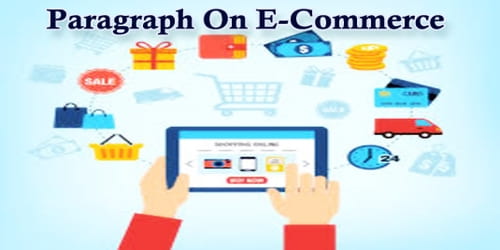E-commerce is the short name for ‘electronic commerce’. It is the buying and selling of goods and services, or the transmitting of funds or data, over an electronic network, primarily the internet. It means business transactions through the internet, telephone, credit card, etc. without the help of cheque or physical payment of money on the part of the buyer. The money is paid by the bank or company. It is the most modern method of transaction and is in practice in the developed countries of the world. E-commerce is in turn driven by the technological advances of the semiconductor industry and is the largest sector of the electronics industry. Any information regarding the price, availability, and quality of the goods is transmitted through the internet and telephone. Thus E-commerce facilitates business transactions without the trouble and risk of carrying money physically. There are three areas of e-commerce: online retailing, electronic markets, and online auctions. E-commerce is supported by electronic business. In our country attempt is being made to introduce it in big cities. E-commerce is especially convenient in import and export business. It requires the company to have the ability to satisfy the multiple needs of different customers and provide them with a wider range of products. An importer in one country can know about a commodity he/she wishes to import from another country and order for it through the internet without being physically present there. He/she may even see the commodity on the screen and be sure of its quality. Thus money, labor and time are saved in the transaction through the E-commerce system.
Paragraph On E-Commerce
















